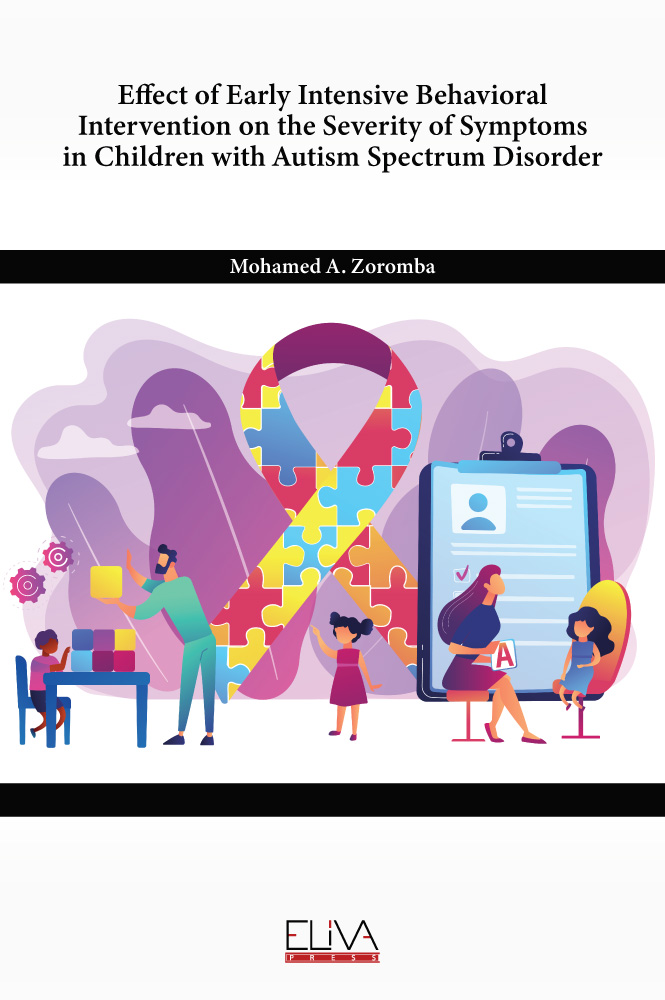Why early support from an Aba Therapist is key
Why early support from an Aba Therapist is key
Blog Article
Checking Out Reliable Techniques for Supporting People With Behavior Autism
Sustaining individuals with behavior autism requires a nuanced understanding of their one-of-a-kind requirements. What certain approaches can you implement to ensure these people flourish?
Recognizing Behavioral Autism: Trick Characteristics and Challenges
When you start to recognize behavior autism, you'll notice several crucial characteristics and challenges that specify the experience for people. Lots of people with behavioral autism usually have a hard time with interaction, making it hard for them to express their demands or feelings effectively. You might observe recurring habits, such as hand-flapping or rocking, which act as coping mechanisms for handling tension or sensory overload. Social communications could be testing; individuals might locate it difficult to read social cues, bring about misconceptions in connections.
It's vital to identify that each individual is one-of-a-kind, and their experiences may vary. Comprehending these characteristics enables you to come close to assistance with compassion, fostering a positive connection that can improve their wellness and urge growth.
The Significance of Personalized Interventions
When it involves supporting individuals with behavior autism, personalized interventions are important. By developing tailored treatment plans that concentrate on individual toughness, you can significantly improve their growth. Collaborating with support teams guarantees everybody is lined up in supplying the most effective treatment feasible.
Customized Intervention Plans
Producing tailored intervention plans is necessary for properly supporting people with behavior autism, as each individual's strengths, needs, and challenges differ substantially. By crafting these customized plans, you can resolve details actions and objectives, making certain a much more concentrated strategy. Begin by gathering detailed details regarding the person, including their choices, activates, and past experiences. Team up with caretakers, therapists, and educators to determine methods that reverberate with them. Constantly keep track of progress and change the strategy as required, guaranteeing it continues to be relevant and efficient. This versatility not just fosters interaction but additionally promotes a sense of possession and empowerment for the individual. Ultimately, customized intervention plans can significantly improve the top quality of support you offer, bring about more meaningful results.
Private Toughness Analysis
An individual toughness analysis is essential for developing personalized interventions for individuals with behavioral autism. By concentrating on everyone's unique capacities, you can develop methods that resonate with their abilities and rate of interests. This technique not just improves engagement but additionally improves positive self-image.
When you recognize staminas, like outstanding memory or creative ability, you can customize interventions that take advantage of these locations. This not only makes discovering more reliable yet also cultivates a sense of accomplishment. Keep in mind, every individual has one-of-a-kind capabilities; identifying them equips you to craft meaningful experiences.
Integrating these strengths right into healing methods and day-to-day routines can bring about improved results. Ultimately, focusing on strengths warranties that interventions are not simply efficient but likewise enhancing for the person.
Collaborative Support Teams
Identifying individual staminas establishes the phase for forming collective assistance groups that concentrate on customized treatments. By bringing with each other professionals, household members, and the people themselves, you create a supportive network that tailors approaches to fulfill specific needs. Each employee contributes distinct insights, making sure a detailed approach that deals with behavioral difficulties successfully.
This flexibility is crucial, as it assists everyone engaged remain aligned with the individual's choices and goals. In addition, engaging in this team-based strategy equips individuals with autism, promoting their self-advocacy and self-confidence.
Evidence-Based Communication Strategies

When collaborating with individuals on the autism range, using evidence-based interaction strategies can substantially boost their capacity to link and reveal themselves. Utilizing visual supports, like image timetables or interaction boards, assists clear up expectations and cultivates freedom. Streamlining language and utilizing concrete terms enables better understanding, reducing aggravation.
Incorporating social tales can prepare people for different situations, educating them proper actions and habits. Motivating the usage of assistive technology, such as speech-generating tools, equips individuals to connect better. Furthermore, employing regular routines and foreseeable atmospheres can supply a sense of security, making interaction more reliable.
Keep in mind to be person and provide time to refine your words. Engaging in energetic listening, where you reflect their thoughts and sensations, can reinforce your connection. By implementing these strategies, you'll create a much more supportive communication ambience for individuals with autism.
Producing Supportive Atmospheres
Developing supportive atmospheres for people with behavior autism begins with carrying out structured regimens that provide predictability and protection. You'll also want to create sensory-friendly rooms that satisfy individual requirements, reducing overwhelming stimuli. Furthermore, making use of favorable reinforcement techniques can motivate preferred habits and foster a sense of accomplishment.
Structured Regular Execution
Developing a structured regimen can considerably boost the setting for individuals with behavior autism. By developing a constant schedule, you provide predictability, which can reduce anxiousness and confusion. A well-structured setting promotes independence and self-confidence, supporting their overall advancement.
Sensory-Friendly Spaces Style

Favorable Support Strategies
When you incorporate positive reinforcement techniques into your technique, you can greatly enhance the discovering and behavior results for people with autism. This involves acknowledging and compensating desired actions, which motivates repetition of those behaviors. Start by recognizing what inspires the specific-- be it commend, symbols, or unique tasks. Strengthen favorable activities immediately to produce a clear link in between actions and incentive. Consistency is vital; warranty that everyone entailed in their treatment applies the exact same support approaches. You can likewise gradually boost the complexity of tasks as people end up being a lot more comfy, strengthening their development. By creating a setting where positive habits are recognized, you foster self-confidence and a sense of accomplishment, ultimately supporting their development and wellness.
Collaborative Strategies: Dealing With Specialists and family members

Entailing member of the family in decision-making encourages them and improves their capacity to sustain their liked ones. Professionals, consisting of instructors and therapists, can give useful resources and training that additionally assist family members.
You must likewise respect each party's viewpoint, acknowledging that families recognize their youngster best while experts check here bring specialized understanding. By crafting individualized strategies together, you produce a customized approach that attends to unique requirements. Autism Spectrum Therapies. Inevitably, this partnership not just profits the individual with autism but also reinforces the assistance network surrounding them, making it much more efficient and natural
Including Social Skills Training
Building on the strong partnerships formed between households and experts, including social abilities training can considerably boost the assistance given to individuals with behavioral autism. This training helps you instruct essential interaction skills, such as starting discussions, understanding non-verbal hints, and reacting properly in social scenarios.
By utilizing organized activities, role-playing, and real-life circumstances, you create opportunities for practice in a secure setting. Motivate individuals to take part in group setups where they can involve with peers, promoting friendships and improving their comfort in social contexts.
It is essential to tailor the training per person's distinct strengths and obstacles, guaranteeing they really feel confident and qualified. Frequently incorporating responses from both households and experts can fine-tune these techniques, making social skills educating a lot more efficient. Ultimately, you're encouraging individuals with the tools they require to navigate social interactions efficiently and develop meaningful partnerships.
Checking Development and Adjusting Strategies
As you apply social skills training, it's important to monitor progress and readjust techniques as necessary. Keep track of habits, noting problems and improvements.
Engage the individual in reflection, asking just how they feel concerning their development and what difficulties they deal with. This feedback is invaluable for tailoring your technique. Do not be reluctant to customize them. if certain techniques aren't producing results.
Integrate a selection of strategies to keep the training appealing and vibrant. Team up with various other caretakers or professionals for fresh point of views and insights. Remember, versatility is vital; what works today may not work tomorrow. By staying responsive and alert, you create an environment that fosters growth and advancement. Constantly celebrate achievements, regardless of how tiny, to motivate continued effort and excitement.
Regularly Asked Questions
What Are the Common Misconceptions Concerning Behavioral Autism?
You might believe behavior autism only affects communication, however it encompasses far more. Lots of think all people with autism act the exact same, overlooking their special traits and abilities. It's vital to recognize everyone's distinctions.
How Can Technology Help in Supporting Individuals With Behavioral Autism?
Modern technology can improve interaction, providing tools like applications for social abilities and habits tracking. You can make use of digital reality for immersive experiences, and wearable gadgets can check emotional states, assisting you support people properly.
What Function Do Sensory Handling Issues Play in Behavioral Autism?
Sensory handling issues can greatly impact behavior. You may discover that overwhelming sensory input causes anxiousness or crises. Recognizing these challenges helps you develop a much more encouraging atmosphere for people experiencing sensory overload.
Are There Details Dietary Recommendations for People With Behavioral Autism?
Yes, details dietary recommendations can help. You might consider a gluten-free or casein-free diet plan, which some locate helpful (Aba Therapist). Always seek advice from a health care expert before making significant adjustments to ensure it's best for you or your liked ones
Just How Can Peers Be Educated to Support People With Behavioral Autism?
To inform peers, you can organize workshops, develop insightful materials, and encourage seminars. Involving activities, like role-playing circumstances, aid them recognize obstacles faced by people, cultivating compassion and reliable support within the area.
Checking Out Effective Methods for Sustaining People With Behavioral Autism.
Producing tailored intervention strategies is necessary for effectively supporting individuals with behavior autism, as each individual's requirements, toughness, and challenges differ substantially.A private toughness analysis is essential for establishing personalized treatments for people with behavioral autism.To support people with behavioral autism, making sensory-friendly rooms is important, as it can substantially improve their convenience and emphasis.Collective approaches are important for supporting individuals with behavior autism, as they cultivate a solid partnership between experts and family members.
Report this page